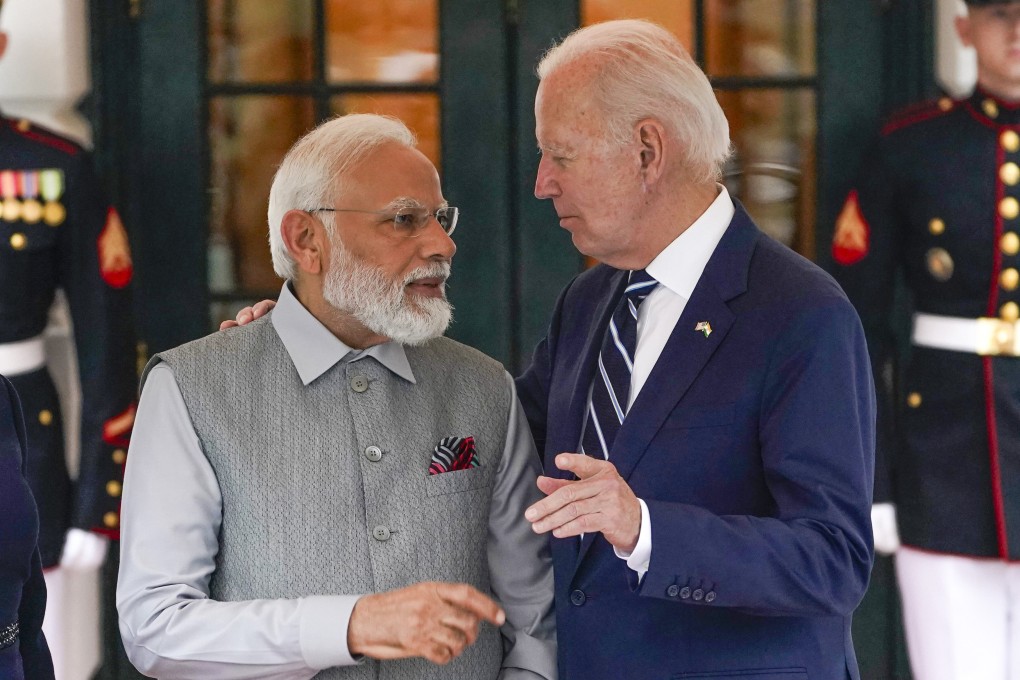With China in mind, Biden and Modi to seal deals from space to chips, 5G to critical minerals
- Leaders will hold talks on Thursday and announce a raft of agreements, senior US officials say
- It comes as the two nations move closer amid a mutual desire to counter Beijing’s rising clout

Biden is hosting Modi at the White House for a state visit, only the third such visit for his administration since taking office in January 2021. They will hold bilateral talks on Thursday afternoon.
Known for avoiding impromptu media interactions, Modi will hold a joint press briefing with Biden to share the outcomes of the meeting. It will be followed by Modi’s address to a joint session of US Congress.
According to senior Biden administration officials, the two leaders will announce key collaborations under the umbrella of the US-India Critical and Emerging Technology (iCET) initiative, which was launched in May last year to deepen cooperation in artificial intelligence, quantum computing, semiconductors and wireless telecommunication.
In addition, Applied Materials, an American manufacturing company that offers equipment, services and software to chip makers, will open a commercialisation and innovation centre in India. Lam Research, another US-based semiconductor company, will train 60,000 Indian engineers.
